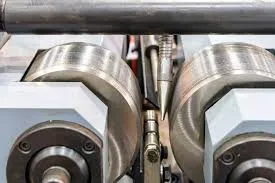
-
 Afrikaans
Afrikaans -
 Albanian
Albanian -
 Amharic
Amharic -
 Arabic
Arabic -
 Armenian
Armenian -
 Azerbaijani
Azerbaijani -
 Basque
Basque -
 Belarusian
Belarusian -
 Bengali
Bengali -
 Bosnian
Bosnian -
 Bulgarian
Bulgarian -
 Catalan
Catalan -
 Cebuano
Cebuano -
 Corsican
Corsican -
 Croatian
Croatian -
 Czech
Czech -
 Danish
Danish -
 Dutch
Dutch -
 English
English -
 Esperanto
Esperanto -
 Estonian
Estonian -
 Finnish
Finnish -
 French
French -
 Frisian
Frisian -
 Galician
Galician -
 Georgian
Georgian -
 German
German -
 Greek
Greek -
 Gujarati
Gujarati -
 Haitian Creole
Haitian Creole -
 hausa
hausa -
 hawaiian
hawaiian -
 Hebrew
Hebrew -
 Hindi
Hindi -
 Miao
Miao -
 Hungarian
Hungarian -
 Icelandic
Icelandic -
 igbo
igbo -
 Indonesian
Indonesian -
 irish
irish -
 Italian
Italian -
 Japanese
Japanese -
 Javanese
Javanese -
 Kannada
Kannada -
 kazakh
kazakh -
 Khmer
Khmer -
 Rwandese
Rwandese -
 Korean
Korean -
 Kurdish
Kurdish -
 Kyrgyz
Kyrgyz -
 Lao
Lao -
 Latin
Latin -
 Latvian
Latvian -
 Lithuanian
Lithuanian -
 Luxembourgish
Luxembourgish -
 Macedonian
Macedonian -
 Malgashi
Malgashi -
 Malay
Malay -
 Malayalam
Malayalam -
 Maltese
Maltese -
 Maori
Maori -
 Marathi
Marathi -
 Mongolian
Mongolian -
 Myanmar
Myanmar -
 Nepali
Nepali -
 Norwegian
Norwegian -
 Norwegian
Norwegian -
 Occitan
Occitan -
 Pashto
Pashto -
 Persian
Persian -
 Polish
Polish -
 Portuguese
Portuguese -
 Punjabi
Punjabi -
 Romanian
Romanian -
 Russian
Russian -
 Samoan
Samoan -
 Scottish Gaelic
Scottish Gaelic -
 Serbian
Serbian -
 Sesotho
Sesotho -
 Shona
Shona -
 Sindhi
Sindhi -
 Sinhala
Sinhala -
 Slovak
Slovak -
 Slovenian
Slovenian -
 Somali
Somali -
 Spanish
Spanish -
 Sundanese
Sundanese -
 Swahili
Swahili -
 Swedish
Swedish -
 Tagalog
Tagalog -
 Tajik
Tajik -
 Tamil
Tamil -
 Tatar
Tatar -
 Telugu
Telugu -
 Thai
Thai -
 Turkish
Turkish -
 Turkmen
Turkmen -
 Ukrainian
Ukrainian -
 Urdu
Urdu -
 Uighur
Uighur -
 Uzbek
Uzbek -
 Vietnamese
Vietnamese -
 Welsh
Welsh -
 Bantu
Bantu -
 Yiddish
Yiddish -
 Yoruba
Yoruba -
 Zulu
Zulu
Flat Thread Rolling Machine Pricing Guide and Comparison
Understanding the Price List of Flat Thread Rolling Machines
In the world of manufacturing and metalworking, flat thread rolling machines play a crucial role in producing high-quality threaded components with precision and efficiency. These machines are widely utilized in various industries, including automotive, aerospace, construction, and more. With the growing demand for threaded products, understanding the pricing structure of flat thread rolling machines is essential for businesses and investors alike.
What is a Flat Thread Rolling Machine?
A flat thread rolling machine is a specific type of machinery used to create threads on a flat surface, transforming a basic metal piece into a functional and integral component. The process involves the use of rollers to deform the material and create threads, which are essential for fastening and assembly purposes. These machines are known for their ability to produce threads with high accuracy while minimizing waste material.
Factors Influencing the Price of Flat Thread Rolling Machines
1. Machine Specifications The price of a flat thread rolling machine can vary significantly based on its specifications, including size, threading capacity, and the materials it can process. Machines designed for industrial use typically have higher prices due to their advanced features and capabilities.
2. Manufacturing Standards Machines that adhere to high manufacturing standards and certifications tend to have a higher price. This is because they are built for longevity, accuracy, and reliability, ensuring fewer breakdowns and maintenance costs over time.
3. Automation and Technology The level of automation and technological integration within a machine can greatly influence its price. Fully automated machines equipped with computerized controls and advanced features like real-time monitoring systems are usually at the higher end of the price spectrum.
4. Brand Reputation Well-established brands with a strong reputation in the industry often charge a premium for their machines. Buyers are often willing to pay more for products that come with a guarantee of quality and after-sales support.
flat thread rolling machine pricelist

5. Market Demand The demand for certain types of machinery can fluctuate, impacting their prices. A surge in demand for threaded components can lead to increased prices for flat thread rolling machines as manufacturers ramp up production.
6. Customization Needs Businesses may require customized solutions tailored to their specific production needs. Custom-built machines can be significantly more expensive than standard models due to the additional engineering and manufacturing processes involved.
Price Ranges
On average, the price of flat thread rolling machines can range from a few thousand to several tens of thousands of dollars. Entry-level machines may start around $5,000 to $15,000, suitable for smaller operations or those just venturing into thread production. Mid-range options, which offer better features and capabilities, typically fall between $15,000 to $30,000. High-end models designed for large-scale production can exceed $50,000, particularly if they come with advanced automation features.
Where to Buy
Several manufacturers and suppliers specialize in flat thread rolling machines. Buyers can explore both new and used options, depending on their budget and requirements. Major industrial machinery expos and online marketplaces also provide platforms to compare different models and manufacturers, potentially leading to better deals.
Conclusion
In conclusion, understanding the price list of flat thread rolling machines is essential for businesses looking to invest in this vital machinery. Factors such as specifications, technology, brand reputation, and market demand play significant roles in determining the cost of these machines. By considering these aspects and exploring different purchasing options, businesses can make informed decisions that will ultimately enhance their production capabilities and contribute to their growth in the competitive manufacturing landscape. Whether starting small or upgrading to an advanced system, knowledge of the market can empower buyers to choose the right equipment that meets both their operational needs and budgetary constraints.
